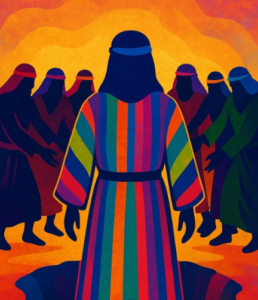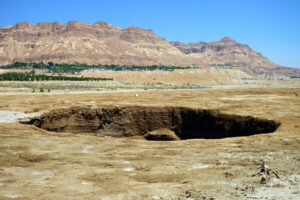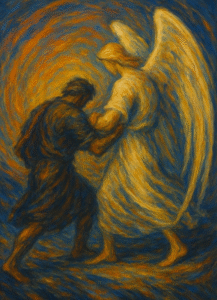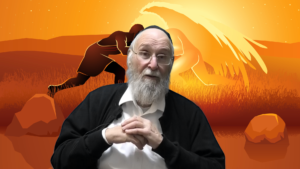Faith vs. Effort
Our parashah states, “Remember God your Lord, for He is the One Who gives you strength to earn a livelihood” (Deuteronomy 8:18). If our living is completely dependent on God, why do have to work so hard for it?
Two seemingly opposite forces are at work here: trusting in God’s grace and investing effort in earning a living. Rebbe Nachman says that it’s impossible for us to grasp in this world how these two contrary concepts can coexist, but both are true. Yes, the most important thing is to trust in God, for all our success and bounty is determined by Him alone. Yet at the same time, God says, “God your Lord will bless you in all that you do” (ibid. 15:18), implying that we still have to do our part.
There are two forms of heresy, each form determining the corresponding response of faith or effort. The first form of heresy stems from the Shattering of the Vessels. The Kabbalah teaches that God originally designed the sefirah-vessels as separate entities that were incapable of giving support to one another. When He shone His light into these vessels, the vessels could not bear the intensity of that influx, and shattered. Some of the shards were thrown far afield and formed kelipot (forces of evil) that hide the light of God and create a front for heresy. Man’s engagement in business or work parallels the process of sifting the good from the bad and redeeming the goodness trapped by the forces of evil.
But there is a second, more severe form of heresy. The Kabbalah explains that in order to create our world and the possibility of freedom of choice, God had to “make room” for the Creation. Until that point, God’s Infinite Light filled all existence; there was no empty space that could be characterized as space, emptiness or void. God then constricted His light to the sides, allowing for a Vacated Space in which Creation could take place. This initial act of constriction and darkness concealed His Godliness from creation.
Although God certainly exists in this place, He is also concealed. This differs from the first type of heresy, in which one has the ability to make sense of things and extract the goodness. In this place, the human mind is limited and cannot engage in any form of “sifting” or logical calculations. In this place, the only thing one can do is strengthen his faith in God’s existence and reinforce his belief that, even in this place of darkness, God will not abandon him.
The Targum explains that “He is the One Who gives you strength to earn a livelihood” means that God will give you an idea to make money. How does someone go from rags to riches? Only because God plants an idea in his head. He can be a phenomenal businessman, but if he doesn’t have any savvy ideas of what to do business with, his talents won’t be of any help. If he forces the issue and chooses the wrong merchandise, he risks losing everything. The idea that God grants him isn’t dependent on his efforts at all. By remaining steadfast in his faith even when God is completely hidden, he merits revealing God’s presence in the Vacated Space and will subsequently receive the advice he needs to make matters work.
So the next time things look bleak, whether at work or at home, and you have no idea what to do, realize that you’ve arrived at the Vacated Space. Right now, your job is not to do anything at all, except believe that God is somehow still there. This faith will reveal God’s presence, so that you see Him in your life and are blessed by His advice.
Based on Likutey Halakhot, Pikadon 3
- 0 comment






















